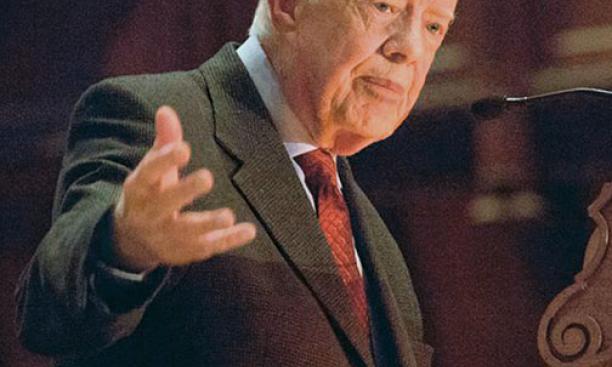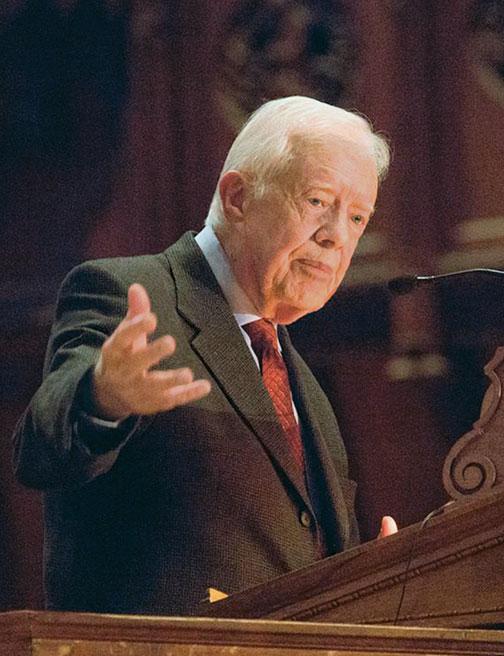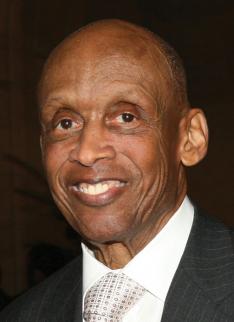

Former president JIMMY CARTER, above, addressed issues of gender equality and sexual violence around the world when he spoke in the University Chapel Dec. 3. But what may have resonated most with the campus crowd of 800 were his comments about sexual violence on college campuses.
Carter, who has been lecturing about his new book, A Call to Action: Women, Religion, Violence and Power, spoke critically of college administrators who fail to address the prevalence of sexual assault on campuses in order to protect the public image of their institutions, citing the underreporting of assaults and a lack of punishment for the assailants. “This university is not immune from that. And neither is Yale or Harvard or Emory, where I teach,” he said.
Carter’s words struck a chord with students who support reforms at Princeton. “I’m happy to see him take a really strong stance on this important issue,” said Zhan Okuda-Lim ’15, who served on a committee to revise the sexual-misconduct section of the University handbook Rights, Rules, Responsibilities. “I’m happy to see that there’s a public leader like Jimmy Carter who, among others, is taking this issue very seriously.”
Supreme Court Justice ELENA KAGAN ’81 visited campus Nov. 20 for a discussion with President Eisgruber ’83 that ranged from the divisions on the Supreme Court to her hunting trips with Justice Antonin Scalia to the good-natured “hazing” that she’s experienced as the junior justice. Kagan described the frustrations of being in the minority on court rulings: “It’s hard to lose. … The worst thing about my time on the court is coming back from a conference and not being in the majority on an issue that you think is important and have strong views about.” She mixed her comments with anecdotes and humor. After seeing her thesis adviser, history professor Sean Wilentz, in the audience, Kagan said she was worried he might “take out his red pen.” Eisgruber quickly responded: “Don’t worry, we’ve repealed the grading policy.”
The University offered EARLY-ACTION ADMISSION to 767 students Dec. 15 — 19.9 percent of the 3,850 candidates who applied. There were four fewer early-action applicants than last year, when the acceptance rate was 18.5 percent. Of those admitted, 10 percent are first-generation college students, 15 percent are legacies, 47 percent are women, and 41 percent are U.S. students from minority backgrounds.
IN MEMORIAM HENRY N. DREWRY, one of Princeton’s first black administrators and the first director of the Program in Teacher Preparation, died Nov. 21 in Skillman, N.J. He was 90. Drewry taught history at Princeton High School before joining the University faculty in 1968 to teach its first courses in black history and culture and to head the Teacher Preparation Program. From 1972 to 1975 he served as master of Wilson College. In 1988 he joined the Mellon Foundation, where he co-founded a fellowship program to promote diversity on university faculties. Drewry co-authored seven books dealing with race and education.

